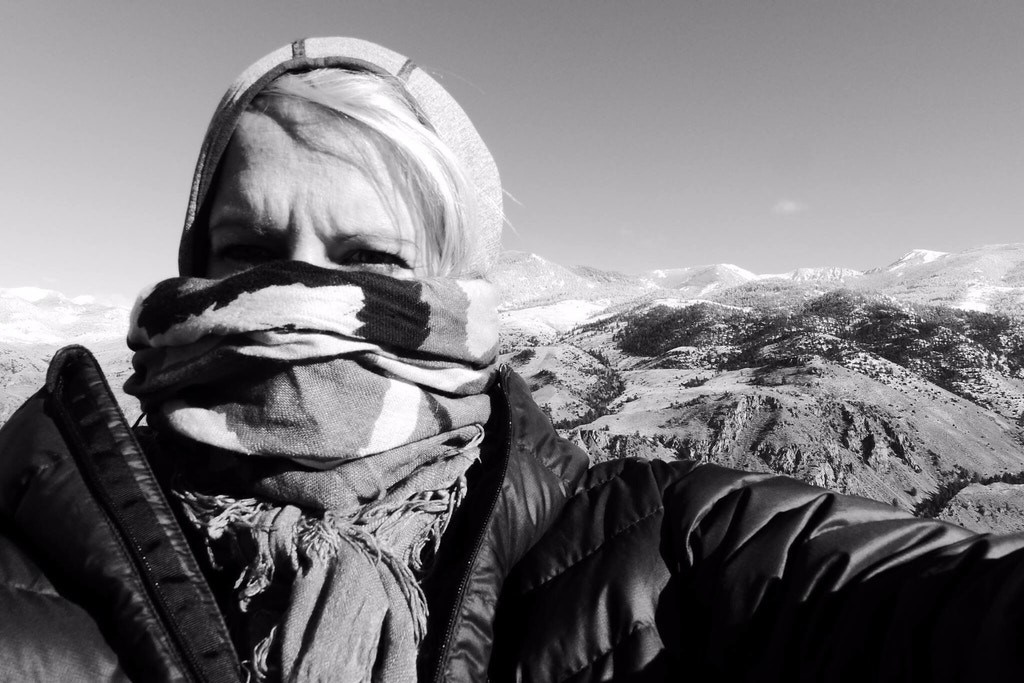Photo source: https://theintercept.com/2018/09/01/metoo-fbi-informant-environmental-activism-rod-coronado/ A self-portrait Julie Henry took after she was assaulted in 2014.
By: Alta Viscomi
Spike Lee’s highly anticipated movie “BlacKkKlansman” winner of the Grand Prix at Cannes, debuted on August 10th to nearly collective high praise.[1] A few days later, director Boots Riley, took to Twitter to remind viewers that the movie’s plot was a “made up story in which the false parts of it to [sic]try to make a cop the protagonist in the fight against racist oppression…[t]he real Ron Stallworth infiltrated a Black radical organization for 3 years.”[2]
Lee’s movie and Riley’s criticism, while centered on a movie set in the 1970s, also illustrate the amorphous boundary between community partnership and surveillance of today’s FBI. Lee’s decision to fictionalize Ron Stallworth’s career comes in an era when community outreach and community monitoring are increasingly difficult to distinguish from one another. Two recent targets of new FBI tactics? Muslim communities in the Bay Area and women whose sexual assailant happens to be a heavily monitored environmental activist.
“In the same way that community policing in the 1980s and 1990s relied on partnerships with African American churches and youth in poor neighborhoods, the federal government’s current community engagement programs focus on mosques, community institutions, and youth in Muslim communities.”[3] Such programs have been especially prolific since 9/11. During the 2004-2008 Mosque Outreach program run by the FBI in the California Bay Area, FBI agents attended religious services and met with various Muslim community leaders.[4]
Optimistically interpreted, the program is evidence of the FBI working to build open lines of communication with Muslim communities and to provide reassurance of their commitment to equal protection.[5] However, Akbar cautions that participants don’t realize the extent of surveillance and documentation that results. “[R]ecords detail the FBI’s broad collection of information: the topic of a particular sermon is noted, along with names and phone numbers of the people with whom the FBI spoke, the relationship between an Islamic school and its parent organization… and congregants’ political opinions.”[6]
The scope of the FBI’s surveillance of these communities remains unknown after a Federal Appeals court overturned a ruling by a judge in California that would have required the FBI to release documents from the efforts to spy on and recruit informants from Muslim communities in Northern California.[7] The case was initiated by a lawsuit filed in 2010 by the ACLU, the Asian Law Caucus, and the Bay Guardian Newspaper.[8] “‘We don’t need additional information to know that the FBI has saturated our community with informants and set up listening posts that continuously monitor the Muslim community,’ Gadeir Abbas, an attorney with the Council on American-Islamic Relations, told Newsweek.”[9] While some documents were made publicly available, others were withheld at the FBI’s discretion,[10] rendering their motivations for and extent of their hybrid community monitoring strategy elusive.
Another frontier of FBI community informant strategy came to light earlier this month after environmental activist Julie Henry was contacted by FBI agent Kera O’Reilly. O’Reilly wanted to talk about Henry’s rapist, environmental folk activist or eco-terrorist (depending on who you ask), Rod Coronado.[11] Henry recounts O’Reilly’s statement that “[w]e’re in the throes of the #MeToo movement” to explain her decision to reach out.[12] For Henry and the general public, the motives behind an FBI agent seeking justice for a sexual assault victim whose assailant happens to lead a closely monitored activist group are difficult to parse out.In fact, sexual assault is rarely a crime over which federal agents have jurisdiction.[13] But Henry noticed that O’Reilly was quick to emphasize that, if she was willing to share new information, the FBI could bring any other charges against Coronado.[14]
The FBI’s emerging strategy of overt community engagement with a social justice flair may serve to heal old wounds in historically ostracized groups. Simultaneously, it complicates an individual’s decision to interact willingly with an FBI agent. As these programs continue, Activists like Julie Henry and members of FBI outreach targeted groups like the Muslim communities in Northern California will have to decide with limited information if they risk exposing their community members to surveillance and prosecution.
[1] Michael Nordine, Boots Riley Criticizes Spike Lee’s Portrayal of Cops in ‘BlacKkKlansman,’ Calls the Real Ron Stallworth a ‘Villain’, IndieWire (Aug. 18, 2018, 12:18 PM) https://www.indiewire.com/2018/08/boots-riley-blackkklansman-spike-lee-criticism-1201996032/.
[2] Boots Riley (@BootsRiley), Twitter (Aug. 17, 2018, 3:02 PM), https://twitter.com/BootsRiley/status/1030575674447212544/photo/1?ref_src=twsrc%5Etfw%7Ctwcamp%5Etweetembed%7Ctwterm%5E1030575674447212544%7Ctwgr%5E373939313b636f6e74726f6c&ref_url=https%3A%2F%2Fwww.indiewire.com%2F2018%2F08%2Fboots-riley-blackkklansman-spike-lee-criticism-1201996032%2F.
[3] Amna Akbar, National Security’s Broken Windows, 62 UCLA L. Rev. 834, 843 (2015).
[4] Id. at 837.
[5] Id.
[6] Id. at 838.
[7] Cristina Maza, Is the FBI Spying on Muslims? Court Decides Bureau Doesn’t Have to Reveal Surveillance of Muslim Americans, Newsweek (Feb. 2, 2018, 12:08 PM), https://www.newsweek.com/fbi-spying-muslims-court-surveilance-798219.
[8] Id.
[9] Id.
[10] Id.
[11] Alleen Brown & John Knefel, The FBI Tried to Use the #MeToo Moment to Pressure an Environmental Activist into Becoming an Informant, The Intercept (Sep. 1, 2018, 8:00 AM), https://theintercept.com/2018/09/01/metoo-fbi-informant-environmental-activism-rod-coronado/.
[12] Id.
[13] Id.
[14] Id.
